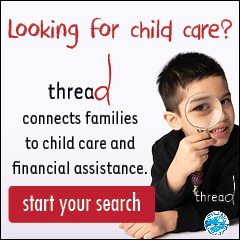Mental Illness and Kids
By Julia Moore
Up to one in five children experience a mental illness in a given year, according to the Centers for Disease Control and Prevention. Despite this high prevalence, parents may easily overlook or misunderstand the signs and symptoms children display. Learn about the common mental illnesses in kids and the signs – sometimes surprising – that you should look for.
The most common diagnoses for kids ages 3-17
Attention-Deficit/Hyperactivity Disorder (6.8 percent of children diagnosed)
Children who have ADHD often fidget in their seats, have difficulty staying on task and keeping track of materials, and they seem like they don’t listen.
Behavior and conduct disorders (3.5 percent of children diagnosed)
Conduct disorders go beyond normal door slamming and temper tantrums; kids with conduct disorders are defiant and aggressive to the point of property damage or being kicked out of school, even preschool. Oftentimes, children with these disorders will justify their actions and won’t think of themselves as defiant.
Anxiety (3 percent of children diagnosed, predominantly girls)
There are a number of anxiety disorders, and the symptoms for each vary, but they are characterized by avoidance of situations due to excessive worry and fear. Children with anxiety might avoid meeting new people, eating in public, or being by themselves. In some cases, they may even remain silent during school or other social situations where they’re expected to/required to speak.
Depression (2.1 percent of children diagnosed)
Children and adolescents with depression lose interest in nearly all activities. They often have insomnia or fatigue, changes in appetite or weight, difficulty concentrating, or even irritability.
Autism Spectrum Disorder (1 in 68 children)
These kids have difficulty understanding social communication and relationships. They often do not use (or use limited) eye contact, gestures and facial expressions.
Don’t delay: Seek treatment
If you suspect an issue, schedule a visit to your child's pediatrician. He or she may refer you to a specialist, like a psychiatrist, psychologist or mental health counselor, for evaluation and treatment. For a child struggling with a mental illness, getting help as early as possible is critical. Thirty-five percent of students age 14 and older with a mental illness drop out of high school, according to the US Department of Education. Not seeking treatment also can result in deadly consequences. Untreated depression can lead to suicidal thoughts and actions, and Alaska has the second-highest suicide rate in the country.
Nationally, suicide is the third leading cause of death in ages 10-14 and the second leading cause of death in ages 15-24, making it crucial to take signs of depression seriously. Ninety percent of those who died by suicide had an underlying mental illness, according to the National Alliance on Mental Illness.
If you have concerns that your child is suicidal, contact a mental health practitioner immediately. For help, call the Alaska CARELINE (1-877-266-4357/HELP), Mental Health Emergency Counseling line (907-563-3200), or Suicide Prevention Hotline (1-800-273-8255).
Untreated mental illness can take kids down a road that makes intervention less successful. “Early intervention is proven to work,” says Victoria Shanklin of the Stone Soup Group in Anchorage. “The more early the intervention, the more successful it is further down the road.”
Although it’s tempting, with internet sources at your fingertips, avoid self-diagnosing your child. Keep a focus on abnormal behaviors, like changes in appetite, sleep, social withdrawal or fear/worry. Victoria suggests journaling as much information as you can about these behaviors to give your doctor a starting point. “When you go into your pediatrician, you have a document and a log of facts,” she says. “You’re actually presenting good data, like the setting, the date, the time, and who they were around.”
For even more background info, the National Institute of Mental Health recommends talking with your child’s teacher to see how he behaves while in class. Is his behavior pretty normal compared to the kids around him, or does he cause disruptions in the classroom? Does he have many friends?
Know that there are a wide range of treatment options available for mental health issues – and, contrary to popular belief, they do not all require medication. By notifying your doctor of any warning signs, you can catch illness early and improve the odds of your child leading a happy, successful life.









